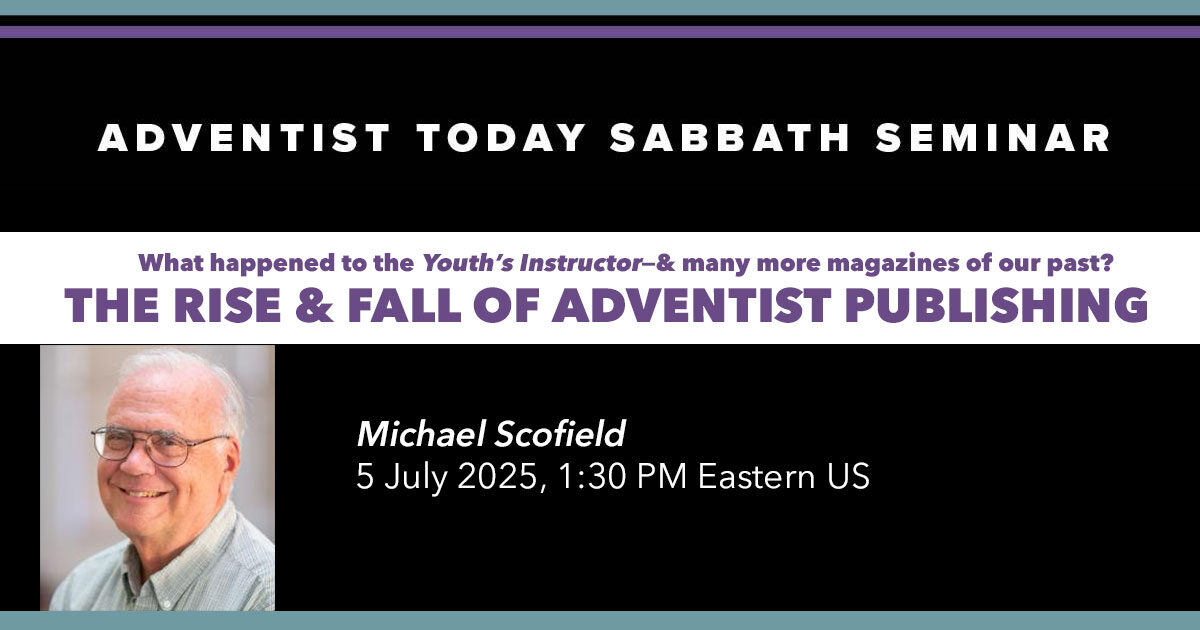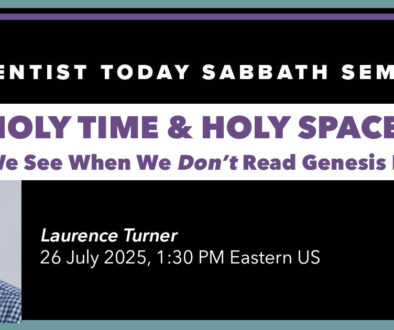ATSS: Michael Scofield, “The Rise & Fall of Adventist Publishing”
2 July 2025 |
The Adventist publishing “industry” is 170 years old. Publishing was vigorous even before Adventist education and healthcare began to expand. In an effort to reach the whole world “in this generation,” publishing houses and journals were established all over the world, ever adding more languages whenever possible.
Books and journals provide a rich and high-volume view into the history of Adventism. They create an important and lasting part of a midrash of Adventist thought, some of it fraught with questionable doctrine and advice. Yet the lexicon of Adventist writing more than 50 years ago can be archaic, and can be misinterpreted by the modern reader.
Compared to other kinds of evangelistic activity (particularly Bible studies and classroom instruction), publishing provides the least amount of feedback to the content creator of the extent they are in their own bubble, and they may fail to understand their audience. It shouldn’t be surprising that it led to a number of “pop doctrines,” such as the precariousness of salvation.
While early Adventist publications had little competition for the attention of their readers, the explosion of media channels and content since 1920 distracts both members and non-Adventist readers from reading Adventist content thoroughly. The receptivity for printed material has declined severely in the past 30 years. Adventist book stores have closed.
The Adventist readership attention is waning, and union conference journals have retreated from weekly mailings to monthly or even bi-monthly. This undermines the sense of community beyond the individual congregation. Indeed, in the North American Division, the local congregation (as community) has taken precedence over the world-wide work of the church.
Teacher:
Michael Scofield, M.B.A., a sixth-generation Adventist, is an avid amateur historian. He has served on numerous committees (particularly in the Pacific Union Conference) on church structure and governance. His primary career has centered outside the denomination in various aspects of data management and information technology, including database design, data quality assessment, and data visualization. He has been on the data management speaking circuit for 27 years, with over 400 lectures to professional and academic audiences all over the U.S., London, Australia, and Canada. He has also spoken on topics of Adventist culture and institutional development for many Forum chapters and progressive Sabbath School classes. He also has had humor published in the Los Angeles Times and other journals.
Moderator:
How to join:
Join Zoom: https://us06web.zoom.us/j/81022209983
Passcode: ADVENTIST {ALL CAPS}
ATSS starting time depends on where you are. If you’re on the west coast of the United States, it’ll be 10:30 AM. On the east coast, 1:30 PM. Times in Europe, Africa, and elsewhere will vary with local time changes. Please double-check the correct time where you live.
The class is intended to last about 2 hours, though the conversation often continues to 4 PM (Eastern time).
About our class:
- The AT Sabbath Seminar is intended to be a courteous forum.
- Stick to the topic in both comments and chat discussion.
- Make your comments and questions short—don’t dominate.
- Keep your microphones muted unless you are called upon to make your comment or ask your question.
- Indicate your interest in speaking by raising your electronic hand.
- Please use your name when you sign in, so we know who we’re addressing.
We look forward to getting acquainted with you!
YouTube channel:
You can see all of our previous ATSS recordings here.
Coming up:
- Lisa Diller
- Stephen Ferguson
- Olive Hemmings
- Landon Schnabel
- Laurence Turner
- Kevin Burton




